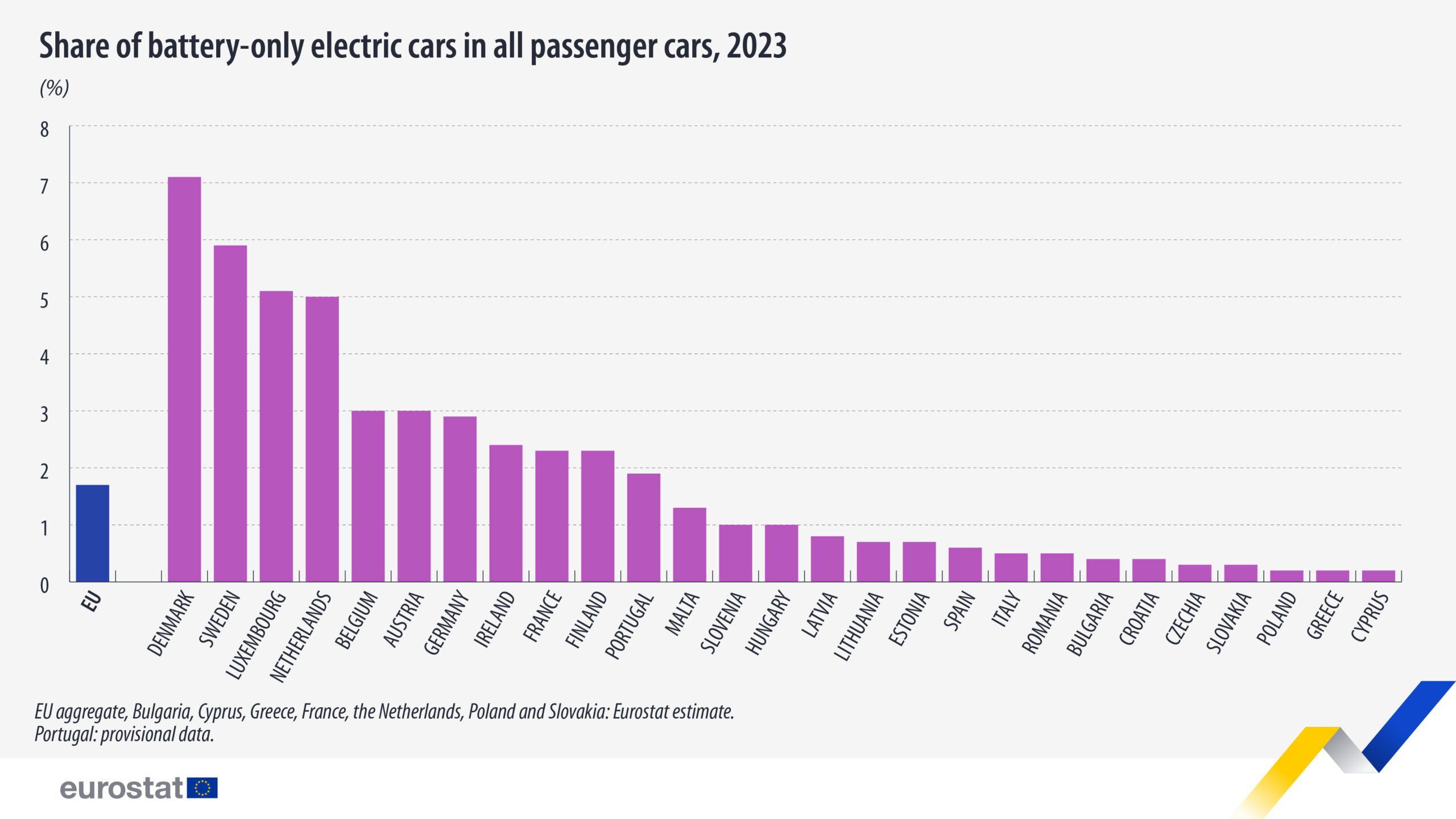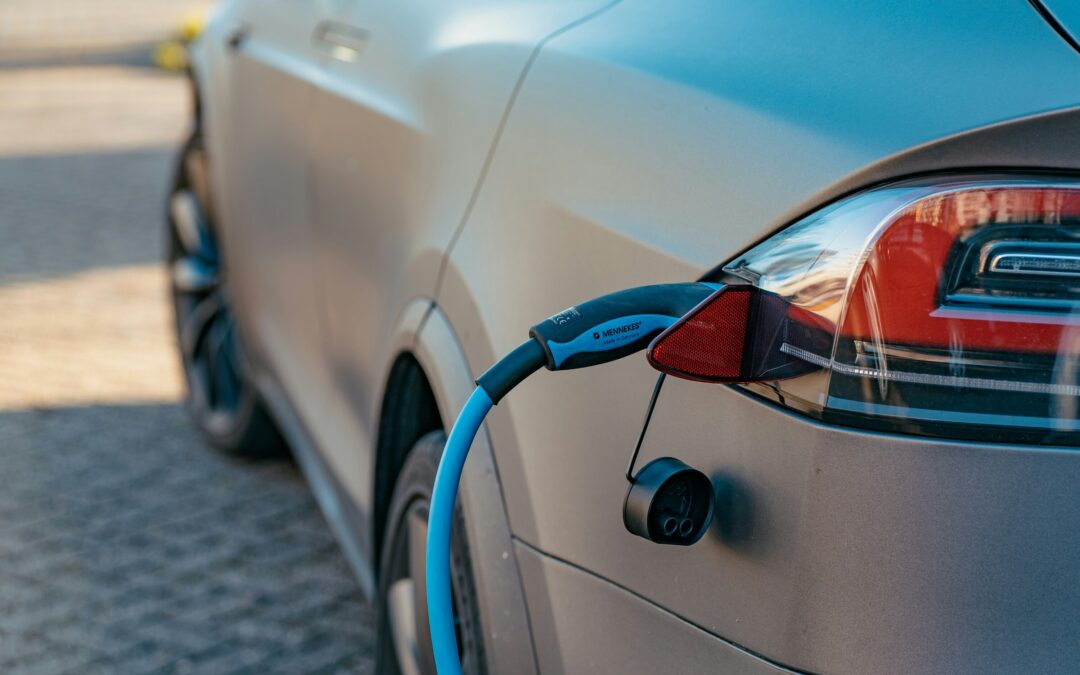Just 0.2% of all passenger cars in Poland are fully electric, the joint-lowest proportion in the European Union, new data for 2023 from Eurostat show.
Poland shares bottom place with Cyprus and Greece. At the other end of the spectrum, in Denmark, battery-only electric cars made up 7.1% of all passenger vehicles, followed by Sweden (5.9%), Luxembourg (5.1%) and the Netherlands (5.0%).
Battery-only electric cars accounted for 1.7% of all cars in the EU as a whole in 2023.

Poland has long been behind other EU countries in the development of electromobility, but also behind its own targets. In 2016, the then Law and Justice (PiS) government announced the aim of having one million electric vehicles on Polish roads by 2025.
Those ambitions were later scaled back amid low take-up of the scheme to subsidise the cost of purchasing electric vehicles. In 2019, after only 1,324 electric cars were registered in Poland the previous year, the government lowered its target to 600,000 electric and hybrid vehicles by 2030.
At the end of 2023, however, there were still only around 52,100 battery electric vehicles (BEVs) registered in Poland, according to data from the Polish New Mobility Society (PSNM).
By the end of May this year, the number had risen to just under 60,000. Including hybrid cars, there were just over 115,000 electric vehicles in Poland in May.
Poland also has a small number of electric car charging points. At the end of May, there were just under 7,000 of them in the country, compared to around 154,000 in the Netherlands, 75,000 in the UK and 28,600 in Spain.
Sorry to interrupt your reading. The article continues below.

Notes from Poland is run by a small editorial team and published by an independent, non-profit foundation that is funded through donations from our readers. We cannot do what we do without your support.
Poland is, however, a hub for electromobility production. In 2020, it became the EU’s largest exporter of electric buses, with Solaris – a Spanish-owned Polish manufacturer – Europe’s largest producer of such buses. Poland is also the world’s second-biggest producer of lithium-ion batteries, behind only China.
However, the former PiS government’s plans to launch Poland’s own electric car brand, Izera, were 96% behind schedule by the time the party left office late last year. By June this year, there had still not been a decision made on starting to build a factory to produce the vehicles.
In a draft update to Poland’s national energy and climate plan, the new government that took power in December wrote that it will be “difficult” for the country to meet the EU’s target of reaching a 29% share of renewables in the transport sector by 2030.
The government estimates that by the end of this decade, 17.7% of Polish transport will be powered by renewable energy sources. Last year, renewables accounted for a record 26% of Poland’s energy mix. However, around two thirds of power was still produced from coal.
Progress in government plans to create a Polish electric car is at only 4% of where it was supposed to be despite large investment, says the state auditor.
Despite an aim to begin producing the cars in 2023, a factory site has not yet even been securedhttps://t.co/Xho1IylvBh
— Notes from Poland 🇵🇱 (@notesfrompoland) September 21, 2023
Main image credit: Ernest Ojeh/Unsplash

Alicja Ptak is deputy editor-in-chief of Notes from Poland and a multimedia journalist. She has written for Clean Energy Wire and The Times, and she hosts her own podcast, The Warsaw Wire, on Poland’s economy and energy sector. She previously worked for Reuters.



















